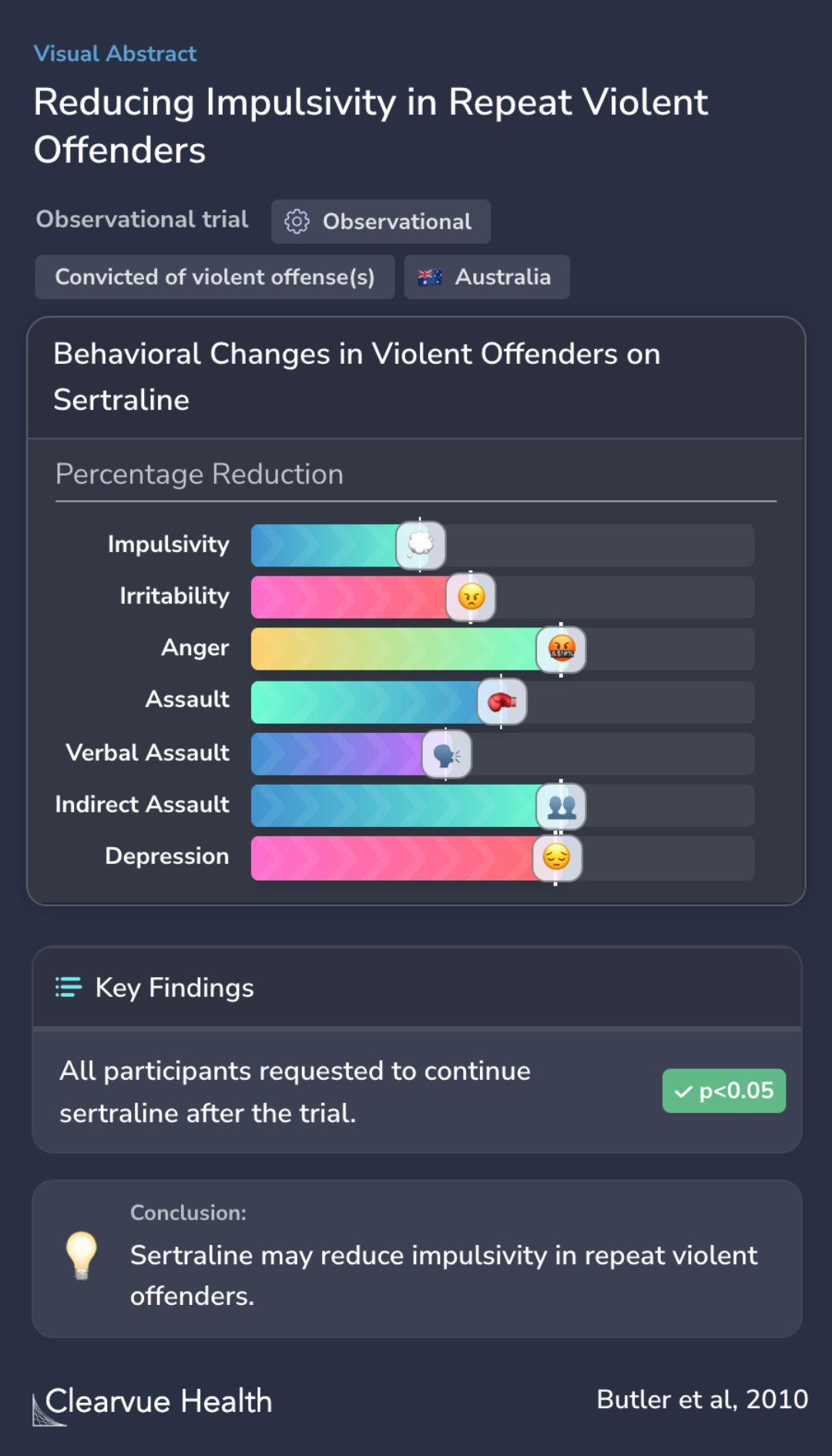Reducing impulsivity in repeat violent offenders: an open label trial of a selective serotonin reuptake inhibitor
Reducing Impulsivity in Repeat Violent Offenders
Tony Butler, Peter W Schofield, David Greenberg, Stephen H Allnutt, Devon Indig, Vaughan Carr, Catherine D'Este, Philip B Mitchell, Lee Knight, Andrew Ellis

Objectives
The current study aimed to explore whether selective serotonin reuptake inhibitors (SSRIs) can address impulsivity in repeat violent offenders.
Previous research has shown that violent offenders tend to make more impulsive choices and report higher impulsivity scores compared to non-violent offenders.
There's also evidence that altering serotonin may reduce impulsive aggressive behavior.
The aim of the current study was to examine the feasibility of using an SSRI to treat impulsivity in a group of repeat violent offenders.
Methods
For the study, participants were selected from three magistrates' court complexes in the Sydney area, all with histories of violent offending.
These individuals, who scored high on an impulsivity test, were prescribed sertraline (Zoloft) for three months.
The inclusion criteria ensured that the study focused on individuals with significant levels of impulsivity and a history of violent behavior.
Potential participants were recruited from three magistrates' court complexes in the Sydney metropolitan area and all had histories of violent offending (at least one prior conviction for a violent offence). Those who scored highly on the Barratt Impulsivity Scale (BIS-11), passed medica...
Results
The administration of sertraline resulted in considerable reductions in impulsivity and various negative behaviors among the participants. There was a notable decrease in a range of behavioral measures: impulsivity reduced by 35%, irritability by 45%, anger by 63%, assault by 51%, verbal-assault by 40%, indirect-assault by 63%, and depression by 62%.
The desire of all participants to continue sertraline treatment post-trial underlines the perceived benefits of the medication.
Reductions were observed across a range of behavioural measures from baseline to 3 months: impulsivity (35%), irritability (45%), anger (63%), assault (51%), verbal-assault (40%), indirect-assault (63%), and depression (62%). All those who completed the three month trial requested to con...
Conclusions
The study's findings suggest that using SSRIs like sertraline could be a viable treatment option for impulsive, violent individuals within the criminal justice system. This potential is supported by studies showing the broader impact of impulsivity on adverse outcomes. For instance, impulsivity has been linked to bulimia nervosa, indicating a positive association with bulimic symptoms.
Additionally, impulsivity, especially in the context of conditions like ADHD, has been associated with increased rates of drunk driving, showing its far-reaching effects.
Given these findings, the authors believed that an adequately powered randomized control trial is warranted to explore further sertraline's efficacy in treating impulsive behavior in violent offenders.
Our findings suggest that treating impulsive violent individuals in the criminal justice system with an SSRI is a potential treatment opportunity for this population. An adequately powered randomized control trial of this intervention is warranted.